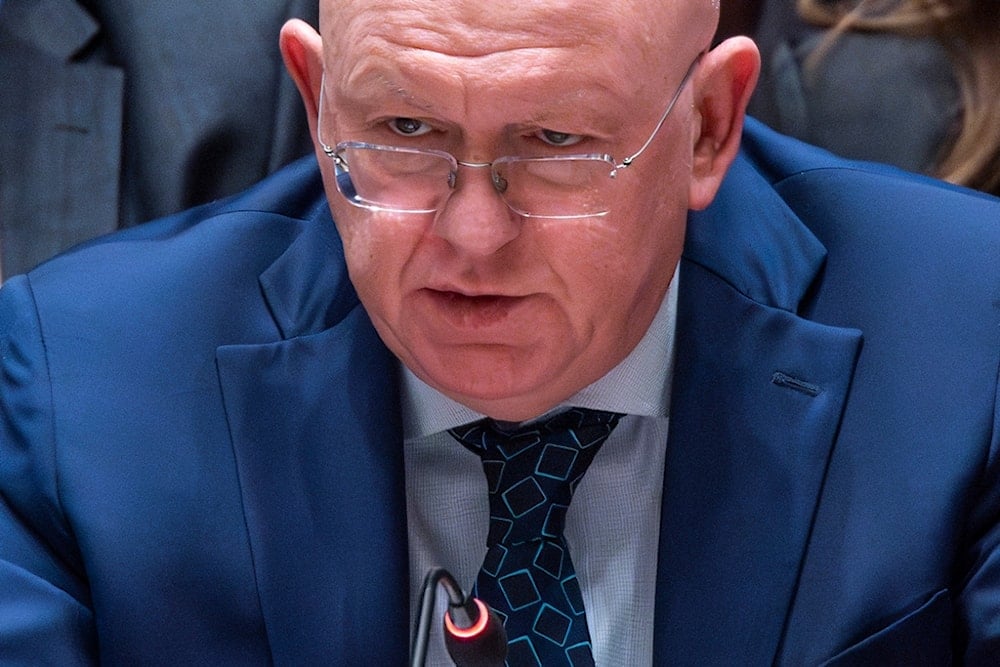Russia warns Germany over transfer of Taurus missiles to Ukraine
The warning follows reports that German Chancellor Friedrich Merz supports transferring the missiles but has yet to make a public commitment, amid tensions within his coalition government.
-

Russian Permanent Representative to the U.N. Vassily Nebenzia addresses members of the U.N. Security Council during a meeting on Non-proliferation of nuclear weapons, April 24, 2024, at the United Nations headquarters (AP)
Russia has issued a stark warning to Germany, declaring that any move to supply Taurus long-range cruise missiles to Ukraine would constitute direct participation in the war and could trigger severe consequences.
The warning follows reports that German Chancellor Friedrich Merz supports transferring the missiles but has yet to make a public commitment, amid tensions within his coalition government.
Speaking at a UN Security Council meeting on Friday, Russian Ambassador to the UN Vassily Nebenzia said, "Germany is going to be drawn further into a war with Russia through these actions [providing Taurus missiles], which will give us the right to consider all options so as to properly respond to this unfriendly step."
He added that Berlin should not ignore the historical weight of its actions: "If there is any common sense left in Berlin, if there are still people there who have not forgotten history, they cannot but understand what these new aggressive actions of Germany against Russia will result in."
Missile Deadlock
The remarks come as internal German debates grow more intense. According to a report by The Times, Merz is in favor of transferring the German-made Taurus KEPD 350 missiles to Ukraine but is holding back due to resistance from the Social Democratic Party (SPD), his key coalition partner.
While Germany, alongside France, the UK, and the US, has already lifted range restrictions on weapons provided to Ukraine, allowing strikes within Russian territory, the formal delivery of Taurus missiles remains undecided.
Within Germany, opposition figures such as SPD foreign policy spokesperson Ralf Stegner and former parliamentary leader Rolf Mützenich have argued against sending the missiles, warning that such a step would risk escalation and undermine diplomatic avenues. Defense Minister Boris Pistorius has also expressed concerns, noting there are "many arguments" against the move.
The missile in question, capable of hitting fortified targets up to 500 kilometers away, is considered a valuable asset for Ukraine’s long-range strike capabilities. Chancellor Merz previously hinted in an April interview that any decision should be made in concert with other European partners.
Read more: Zakharova warns Germany's Merz of ‘dark era’ over missiles
Nebenzia, however, dismissed Merz’s attempts to soften the issue by suggesting Germany may only help Ukraine develop long-range missiles rather than deliver them directly.
"Afterwards, the German leader did try to backtrack and started to say that Germany was in fact going to help Ukraine to independently produce long-range missiles. Without a doubt, these clumsy maneuvering didn't fool anybody," he said.
As Ukrainian President Volodymyr Zelensky prepares for an expected visit to Berlin, the Taurus issue is set to take center stage in German-Ukrainian talks.

 3 Min Read
3 Min Read











